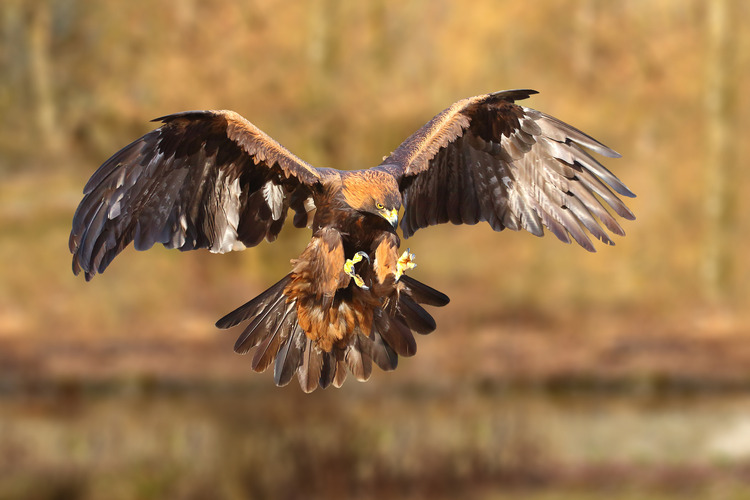
Police in Scotland say that a rare golden eagle, which disappeared late last year was most likely a victim of persecution
By
In November of last year, we reported on the suspicious disappearance of one of southern Scotland’s 46 iconic golden eagles. Translocated from another part of Scotland, the eagle, known as Merrick, was one of only 46 present in the Scottish border areas. It was last seen on October 12, 2023. At the time, we reported police sources who said that the disappearance was being treated as suspicious.
This week Police Scotland have confirmed that they are indeed confident that the eagle’s disappearance is due to persecution. Dr Cat Barlow, project manager for the South of Scotland Golden Eagle Project, a conservation and rewilding group, said: ‘We can confirm that Police Scotland has found clear evidence that a wildlife crime has been committed. They are confident Merrick’s disappearance was due to persecution. The South of Scotland Golden Eagle Project is incredibly angry, upset and disappointed that her disappearance appears to have been at the hands of an individual or individuals who consider themselves above the law. This incident, and the staunch support we have had, makes us utterly determined to fight the persecution of golden eagles and continue our successful translocation work to reinstate a resilient population of golden eagles across southern Scotland.’
The South of Scotland Golden Eagle Project team had followed Merrick’s journey since her release by the group in the summer of 2022 using round-the-clock surveillance techniques, alongside reports of sightings from the Moorland Association and shooting estates across the country. She was said to have been thriving before her disappearance and exploring widely across the south of Scotland and Northern England.
Each of the project’s eagles is fitted with a satellite tag that transmits regular information about the birds’ well-being and movements. Until her disappearance, Merrick’s tag had been transmitting normally. For eight days before her disappearance, she was exploring the Moorfoot Hills. Then, on 12 October, her tag suddenly stopped transmitting, indicating “no malfunction,” which strongly suggested human interference.
On a visit to check on a juvenile eagle in the area, Eagle Officer John Wright inspected the relatively bare branches of a sitka spruce, Merrick’s last known roosting spot. He very quickly noticed a small golden lanceolate-shaped head feather, two small wing coverts and some white under-down laying on the moss directly below the tree. Recalling his visit to the site, John said: ‘I saw a film of blood stretched across the grass stems. It subsequently turned out that a considerable amount of blood was present in and below the moss layer. As I stood back from the feather and blood location, I could see small downy feathers scattered in the dense spruce foliage below the roosting branches.’
In a statement, Dr Cat Barlow said: ‘Looking at the evidence, Police Scotland believe she was shot then fell to the ground, where she bled considerably through a single wound. Police Scotland believe that someone then removed her body and destroyed her satellite tag.’
Despite this tragic setback, the South of Scotland Golden Eagle Project has had significant success since the first eagles were released into the wild in 2018. They have managed to quadruple the local population of golden eagles to the highest number seen in the area for centuries. The survival rate of the translocated birds is 90 per cent, which is incredibly high.
The translocated golden eagles of the Scottish borders regularly and safely visit upland areas, which are managed for shooting and are a natural habitat for the golden eagle. The project has had excellent support from shooting estates in the area, who have worked with the team in many ways to ensure golden eagles thrive in southern skies — from providing chicks to supporting the development of artificial eyries in a safe place on their land.
Anyone who has any information on this serious wildlife crime is asked to contact Police Scotland on 101.
Related articles:




